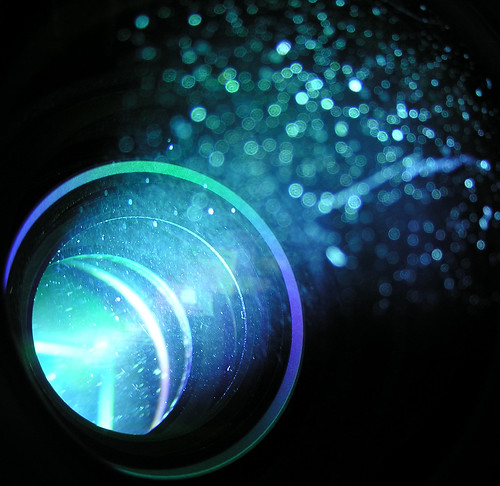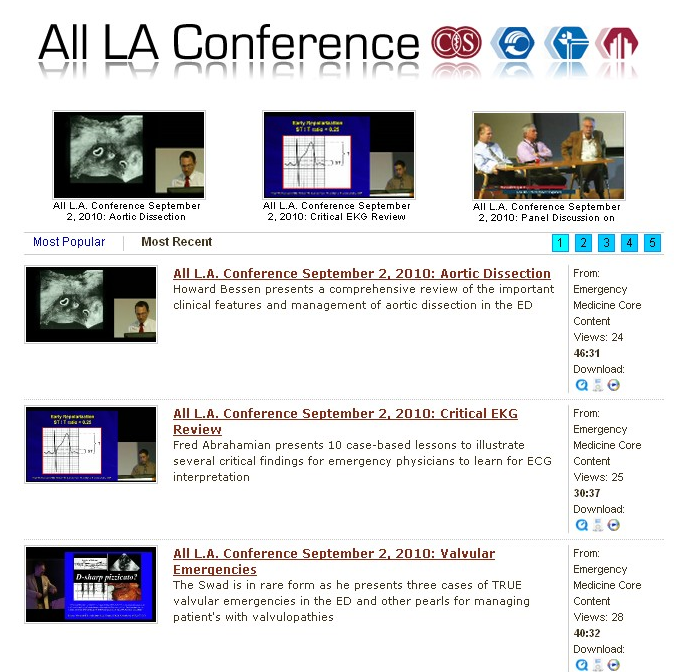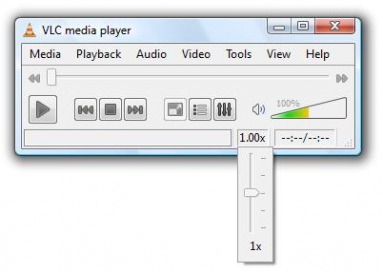"He who opens a school door, closes a prison"
(Victor Hugo (1802-1885) French poet, dramatist and novelist)
(Victor Hugo (1802-1885) French poet, dramatist and novelist)
 Education is everything. It is the sole reason I have started this blog. IT is making education reachable to everywhere and everyone. Physicians already have access to the worlds best medical libraries through excellent textbooks and hospital libraries but they are slow to browse and search and limited to physical locations or availability. The IT revolution is made of many small revolutions. With the advent of sites such as Youtube and TED talks, multimedia education is one of these we are facing right now.
Education is everything. It is the sole reason I have started this blog. IT is making education reachable to everywhere and everyone. Physicians already have access to the worlds best medical libraries through excellent textbooks and hospital libraries but they are slow to browse and search and limited to physical locations or availability. The IT revolution is made of many small revolutions. With the advent of sites such as Youtube and TED talks, multimedia education is one of these we are facing right now.Emergency medicine has a lot of great multimedia sites today. It all started with the podcast revolution but we are seeing more of lectures coming online in the form of videos. If a picture says 1000 words you can imagine how many words a video tells. I would like to tell you about some of my recent discoveries as I believe these will significantly change the way we will learn emergency medicine in the future.
It all started with my Google-ing of common topics like anticholinergic intoxicity, hyperkalemia and general ED scenarios. Some sites came up again and again and, ending up in my bookmark collection and I remember Free emergency talks being one of the first ones. I started really liking some lecturers - names at that time completely unknown to me (except for Billy Mallone who has visited my ED in Reykjavik/Iceland on a several occasions). Amal Mattu, Joe Lex, Stuart Swadron... Actually listening to Amal Mattu's cardiology updates was a life changing experience for me, emergency medicine-wise at least! Never before had I realized the importance of learning from the viewpoint of emergency medicine. After all it is we emergency physicians who are the filters of the hospital, the gatekeepers, the ones who decide if patients go in, out or somewhere between. Why should we bother ourselves about the abyss of chronic a-fib treatment options when our role is to stabilize and admit the a-fib patient who comes in hypotensive and tachycardic! Surely we don't care about the 100+ differential diagnosis of hyponatremia when the most important issues for us is how to manage those who have seizured and have a suspected central pontine myelinolysis?! Well for me as an emergency physician in Scandinavia where EM is a young specialty, this truly was an eye opener. EPs in USA, Canada, Australia and UK have been there already but maybe your seniors will remember those days when your specialty was young.
So I started browsing the Internet to find the sources of all these excellent lecture givers. For weeks I stumbled upon new sites and I came to realize there was a whole lot of things going on digitally in the emergency medicine Web 2.0 community. I found great blogs, podcast sites, EM:Rap... check my list of primary emergency medicine resources (the most popular post yet according to the statistics of my blog) for the review of these. My style of learning emergency medicine was changed forever! This post is focusing on video learning so I will not write more about my "weeks of wow!" but to make a long story short, there were video containing websites I repeatedly got back to. This turns the scope to a college who has changed our way of learning emergency medicine.
 It turns out most (almost all!) of them are the product of a genius, an emergency physician the medical society will someday make a statue of (or at least a special hat!). Let me introduce Mel Herbert (click link for a short video about his work), the Australian emergency physsie (I guess they say it like that down there) now practicing in USC, San Francisco. Although he is involved in some of the lectures himself, his contribution most importantly is that of making the lectures digital and putting them online in an easily accessible format. As an all-digitalized physician my self I know the huge amount of work he must have put into this. In addition to all this he also manages to give birth to a monthly EM:Rap session - yet one of his amazing creations. So let me introduce to you Mel's offsprings and what they will do for you!
It turns out most (almost all!) of them are the product of a genius, an emergency physician the medical society will someday make a statue of (or at least a special hat!). Let me introduce Mel Herbert (click link for a short video about his work), the Australian emergency physsie (I guess they say it like that down there) now practicing in USC, San Francisco. Although he is involved in some of the lectures himself, his contribution most importantly is that of making the lectures digital and putting them online in an easily accessible format. As an all-digitalized physician my self I know the huge amount of work he must have put into this. In addition to all this he also manages to give birth to a monthly EM:Rap session - yet one of his amazing creations. So let me introduce to you Mel's offsprings and what they will do for you!USC Essentials
$450/year, $98/year for residents.I guess most of US emergency physicians have heard about this great conference which runs annually (since 2001?) on the West coast with lecturers and attending guests coming from all around the US. Their lectures are straight-to-point, appropriately short and very practical. One session at the USC Essentials and you are as much up-to-date as you possible can be, perhaps only second to ACEPs annual scientific assembly. There is the USC essentials main course but they have spiced the conference with subdomains such as ECG reading (Amal Mattu onboard!), trauma, ultrasound and orthopedics to mention a few. Check out the menu on their website and you'll get a grasp of the content, there are even a few free lectures online for you to peek in your nose and sniff a few molecules of the Essentials atmosphere.
This was the first site I stumbled upon and I am still browsing trough their archives and my jaw is simply stuck on the floor. Corey Slovis' short and tactile approach to hyper- and hypokalemia, Tom Mailhot's two minute ultrasound examination of the patient in PEA (shock), Amal Mattu's cardiology updates and the legendary Greg Henry (former ACEP president) on medical malpractice... this is heaven for emergency physicians!
Emergency medicine Core content
$299/year, various discounts for residents/students.At USC they have a weekly residency conference where residents, attendings and even consultants give lectures on common ED topics. As expected their approach is a little different to the more "sexy" USC Essentials - they cover more of the basics, all the differentials (even the rare ones), background physiology etc. Also, Core content has something USC Essentials hasn't - audience discussions and dialogs from which I have learned invaluable pearls of wisdom. Especially as they have excellent physicians such as Billy Malone and Stuart Swadron unwinding wisdom from their years of ED experience, like mature and aged volcanoes spewing hot and molten lava high up in the air!
All LA
Free!The little brother to EM Core Content, these are from the Los Angeles EM resident conferences. The lectures are of no less quality but they are not as many. Just as Core content hey cover very interesting (and practical) topics such as valvular emergencies, trauma and pediatric emergencies - specially I like the panel discussions such as this one where their faculty discusses ACS therapy, PE diagnosis & PERC rule, beta-blockers in ACS and much more. Occasionally they have guest appearances from USC so for free you can view some of their great lecture givers such as Stuart Swadron and the USC chief residents whose lectures I have watched with admiration on the Core Content site.
If you want to try out using video lectures for free, this is a highly recommended site to try out.
EM:Rap TV
Free!Yet another Mel product, this is a bit like EM:Rap but in video format. Short, concise videos from all corners of emergency medicine; Mel reviewing the literature, guest appearances teaching common ED procedures, IT news... I see it as an entertaining TV station for emergency physicians, with bits of valuable educative pearls popped in every now and then.
So that's what I have found from Mel B's chocolate factory but there are other sites out there which I have to mention too.
CME download
One time $350 subscription.Backed by The Center for Medical Education which is a 30+ years old foundation, this is no small project. It has a collection of 2.000+ video lectures from some 30+ different conferences, many of which I have never heard of and others which sound really exciting (like "Virtual procedures", "Airway and sedation" and "Expedition & Wilderness Medicine Conference"). There are some big ones there like the National Emergency Medicine Board Review which I would really love to delve into some day as it's educational value must be humongous. You can see a list of their courses right here.
Unfortunately I haven't had the time to review this one either but only from seeing the frontpage of their website, this must be an excellent library of educational videos. Considering the one-time price of $300 it certainly is a bargain too. Hopefully someday I will be back with a post about CME Download.
Others
- EMedHome is worth mentioning since they have high quality emergency physicians on board such as Amal Mattu. They have a few videos on board but those are not whole length lectures as those above and limited to special clinical findings such as an ultrasound diagnosis or examination of an Achilles tendon rupture. They seem to have started with online lectures but I can only find three of these so I assume they decided to focus on their database of excellent articles and podcasts which I hope to review some time in the future.
- Besides this, there are the usual videos at Youtube but they differ enormously in quality as there are thousands of medical videos there. My approach has been to create an account and playlists where I save those videos I want to keep, mainly ED procedures as viewing the video is so more effective than reading the textbooks. There are also some nice channels (kind of playlists other users have done) you can subscribe to. This is material for a later post.
- BMJs educational videos are an honorable mention and need no introduction since they have been around for years (some of them are available on Youtube). Then there are many many ultrasound websites out there. For all those smaller video resources (and actually video webs in general) I'd like to point out an excellent article the Life in the fast lane dudes have published.
That was all folks, the top video sites for emergency physicians in autumn 2010. I hope you have got at least a minuscule of the excitement I have for this revolutionary education form we are witnessing right in our back-yard. Obviously there are great varieties of the video format and how they are presented on websites but when it comes down to it all, it is the lecture and the lecturer who are the most important. I remember the names of the great lecturers more than the websites I saw them on as well as the content of their lectures. Therefore I am really excited to know if ACEP's scientific assembly lectures will ever come online, that would be *the* ultimate thing. I have made several Google attempts to find out if these exist but without success, yet.
 Streaming video technology is just a platform for bringing that good and old style of teaching to our computer. The technology breakthrough is that you don't have to be away from your family for days or pay lots of dollars for attending the conferences but instead have it in your laptop at the comfort of your sofa, in your mobile phone while commuting or in the gym or just on your desktop PC at work. You can view it whenever you like, making use of the various "dead time gaps" found in your daily life. You can pause the video if you are suddenly interrupted to continue later and you can even adjust the playback speed at your needs to maximize the use of your time. This is simply THE most amazing way of e-learning.
Streaming video technology is just a platform for bringing that good and old style of teaching to our computer. The technology breakthrough is that you don't have to be away from your family for days or pay lots of dollars for attending the conferences but instead have it in your laptop at the comfort of your sofa, in your mobile phone while commuting or in the gym or just on your desktop PC at work. You can view it whenever you like, making use of the various "dead time gaps" found in your daily life. You can pause the video if you are suddenly interrupted to continue later and you can even adjust the playback speed at your needs to maximize the use of your time. This is simply THE most amazing way of e-learning.To finish this off I would to point to a wonderful TEDs talk about the impact of video education.
 I just love sucking in every new gadget, website or tip that allows me to learn emergency medicine faster than ever before. I believe e-learning is the field where we have gained the most from information technology and as such I believe that in year 2010 we are much better (informed) doctors than only 10 years ago.
I just love sucking in every new gadget, website or tip that allows me to learn emergency medicine faster than ever before. I believe e-learning is the field where we have gained the most from information technology and as such I believe that in year 2010 we are much better (informed) doctors than only 10 years ago.
 I have come to the conclusion that emergency medicine surely must be one of the most difficult specialties in medicine. We are the the only gate-keepers to the hospital and it is our decision if the person walking in to the ER is sick or not and then if there actually is anything with that symptom that needs follow-up. Amal Mattu in his excellent ECG course has often pointed this out with regards to ECG interpretation - it is the emergency physician, not the cardiologist, who will pick up the pathologic pattern before disaster happens. Take Brugada and Wellens as an example. Treating the patient is not the difficult part, ruling in and ruling out is.
I have come to the conclusion that emergency medicine surely must be one of the most difficult specialties in medicine. We are the the only gate-keepers to the hospital and it is our decision if the person walking in to the ER is sick or not and then if there actually is anything with that symptom that needs follow-up. Amal Mattu in his excellent ECG course has often pointed this out with regards to ECG interpretation - it is the emergency physician, not the cardiologist, who will pick up the pathologic pattern before disaster happens. Take Brugada and Wellens as an example. Treating the patient is not the difficult part, ruling in and ruling out is. Commonly I look over the shoulders of my colleges and see them taking unnecessarily many steps to do simple things. One such is the task of finding out what date it is.
Commonly I look over the shoulders of my colleges and see them taking unnecessarily many steps to do simple things. One such is the task of finding out what date it is.